KARACHI, March 14: The Sindh High Court adjourned the hearing of the petitions moved by Dr Mohammad Ebrahim Jatoi and Abid Hussain Jatoi of the National People’s Party against the Election Commission’s order for repolling in 18 polling stations of their constituencies, NA-202 and PS-12 (Shikarpur), to Saturday after hearing the arguments of their counsel, Abdul Hafiz Pirzada.
Assisted by Advocates Khwaja Shamsul Islam and Abdus Sattar Pirzada, the counsel said Section 103-AA of the Representation of People Act, under which the impugned order had been passed by the chief election commissioner, was enacted in the aftermath of the uproar over the results of the March 1977 general election when he was the federal law and parliamentary affairs minister. The purpose was to empower the CEC to set aside elections in constituencies where the polls were alleged to have been rigged.
The CEC, Mr Pirzada said, was to exercise his power under the provision in cases of patent rigging where ‘irregularities were floating on the surface’. He could be moved by an aggrieved candidate by means of an election petition and could declare balloting in a constituency void after hearing the petition. The extraordinary power conferred on the CEC could not be invoked against ordinary complaints of rigging.
In the instant case, the counsel argued, the CEC has acted on a letter written by Aftab Shaban Mirani of the Pakistan People’s Party on his behalf and on behalf of Agha Arsalan Khan, PPP candidate from PS-12. There was no election petition before the CEC and instead of setting aside the poll and ordering by-elections, he had ordered repolling in 18 polling stations and stayed notification of the NPP candidates as returned candidates. The remedy available to the PPP candidates now was to move an election tribunal as the bar on electoral challenges contained in Article 225 of the Constitution had become operational.
Justices Azizullah M. Memon and Arshad Noor Khan, who constitute the division bench seized of the case, adjourned the hearing to Saturday in order to expedite its early disposal.
Lakhra power project
Another division bench consisting of Justices Munib Ahmed Khan and Syed Pir Ali Shah adjourned the hearing of the Lakhra power project case to March 27. An unsuccessful bidder has challenged the grant of lease to the Associated Group, which is being represented by Advocate Shahid Hamid. The bench has already dismissed a petition by the project’s employees’ union.
Advocate Shahid Hamid argued that the Jamshoro project had only been leased out and not ‘privatized’. No approval from the cabinet committee on privatization or the privatization was required.
Demolition stayed
Justice Khalid Ali Qazi, meanwhile, restrained the municipal authorities from demolishing houses in Dawood Goth near Orangi Town. Several residents complained that the goth had been regularized under the Gothabad Scheme and the municipal authorities were out to dispossess them of their properties without hearing or notice.
Issuing notices to the city district government and the Orangi Town authorities, the judge asked the nazir to inspect the site. In the meantime, no coercive action would be taken by the municipal or police authorities.
US diplomat case
An appellate bench of the Sindh High Court comprising Justice Mrs Qaiser Iqbal and Justice Syed Mehmood Alam Rizvi on Friday adjourned the hearing of an acquittal appeal of Anwarul Haq, convicted in a US diplomat killing case, till March 18, 2008, adds PPI.
Anwarul Haq, an activist of Al Qaeda, was sentenced to death on four counts, awarded an 85-year prison term, fined Rs1.5 million with the condition that he will have to undergo an additional three-year prison term if the fine is not paid, by Anti-Terrorism Court-III on March 5.
He was convicted for killing US diplomat David Foy on March 2, 2006 in Karachi.
However, ATC Judge Ahmed Nawaz Shaikh, convicting the appellant, had acquitted co-accused Usman Ghani, giving him the benefit of the doubt on account of a lack of evidence, and declared Qari Zafar, mastermind of the attack, a wanted criminal.The appellant, through his counsel Ilyas Khan, challenged the death penalty awarded to him and submitted that witnesses had not identified him and their statements were contradictory.
He alleged that witnesses and evidence had been created by police as none of the witnesses were present at the scene of crime. He prayed the court to set aside the death penalty awarded to him.













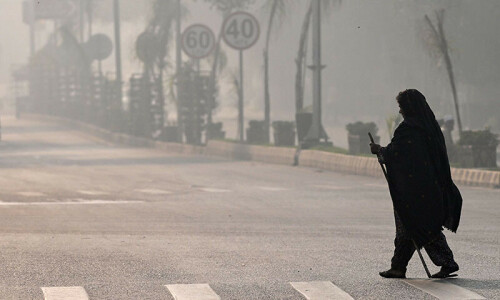




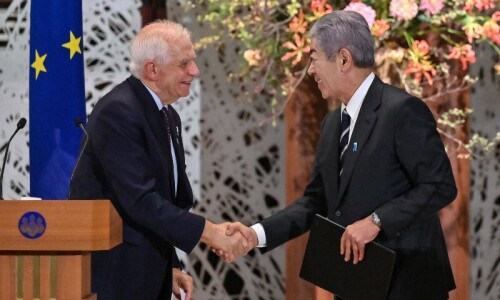


















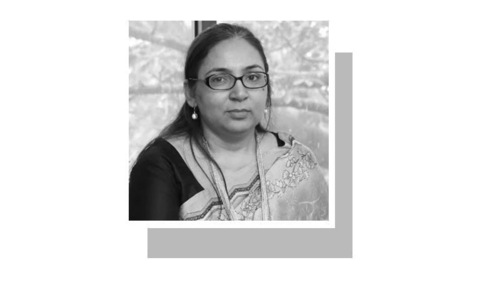
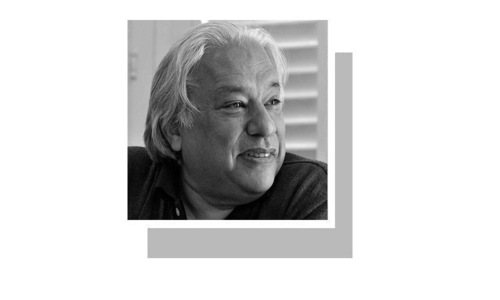

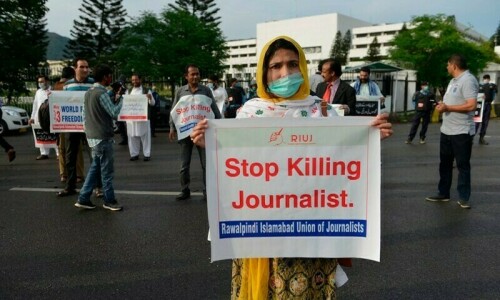


Dear visitor, the comments section is undergoing an overhaul and will return soon.